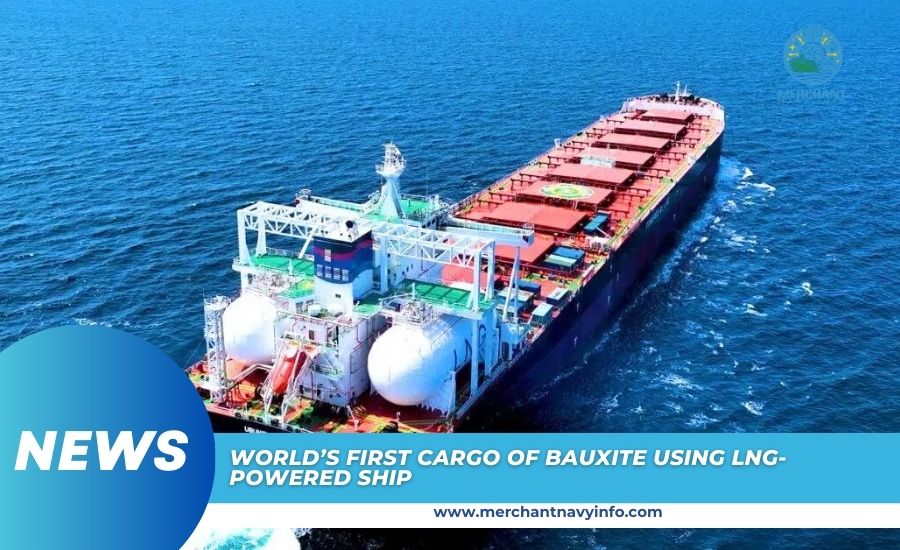
Emirates Global Aluminium, the world’s largest producer of premium aluminum, has set a new world record by shipping a cargo of bauxite on a ship powered by LNG.
Ubuntu Empathy, a large ship with dual LNG fuel capability, is transporting the historic cargo. This is the first bauxite to be transported on an LNG-powered ship.
Emirates Global Aluminium Has Shipped The World’s First Cargo Of Bauxite On An LNG-Powered Ship.
Ubuntu Empathy is one of Anglo-American’s ten dual-fuel LNG vessels. Guinea Alumina, a subsidiary of Emirates Global Aluminium, transported the cargo to a customer in China.
According to SEA-LNG, LNG-powered ships such as Ubuntu Empathy can reduce greenhouse gas emissions by up to 28% compared to conventional marine fuels.
By 2022, the global shipping industry will be responsible for over 2% of global greenhouse gas emissions, a significant decrease compared to current levels. This information comes from the International Energy Agency.
The massive vessels are among the largest bulk carriers and can carry around 180,000 tonnes of bauxite ore. Measuring 300 meters in length and 50 meters in width. The vessels are vital to EGA’s operations, which include transporting bauxite from Guinea to its alumina refinery in Abu Dhabi and numerous customers worldwide.
Abdul Nasser bin Kurban, CEO of Emirates Global Aluminium, highlighted the importance of sustainability in aluminum production and transport, noting that by pioneering LNG-powered transport. Furthermore, Emirates Global Aluminium aims to reduce emissions and contribute to our goal of achieving net zero emissions by 2050.
Guinea Alumina Company, EGA’s bauxite mining subsidiary, has helped the company become one of the world’s largest commercial bauxite suppliers. GAC started production in 2019, increasing EGA’s position in the global bauxite market.
However, Emirates Global Aluminium has approved a 2023 ocean freight charter. Becoming the first aluminum producer in the Middle East to do so.
Additionally, EGA is working with “K” Line to develop innovative marine decarbonization technologies specifically designed for its Eastern Atlantic, Mediterranean, and Indian Ocean routes.









